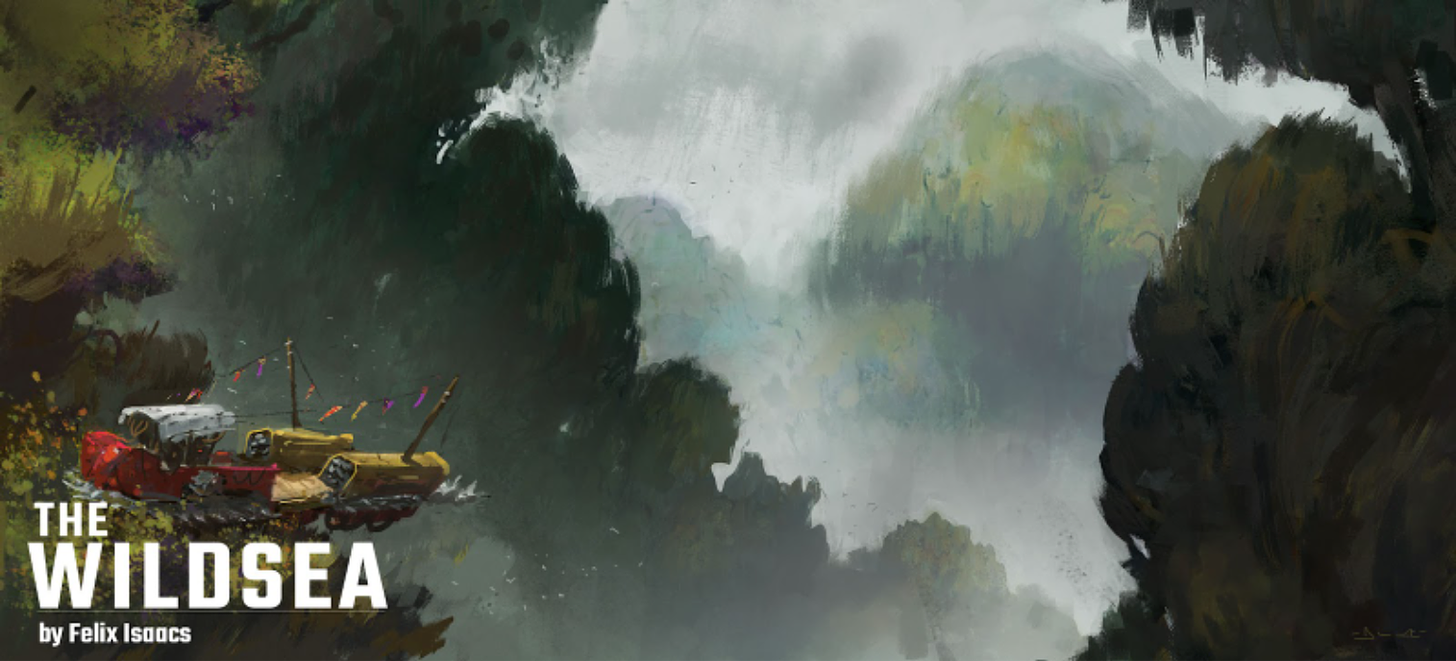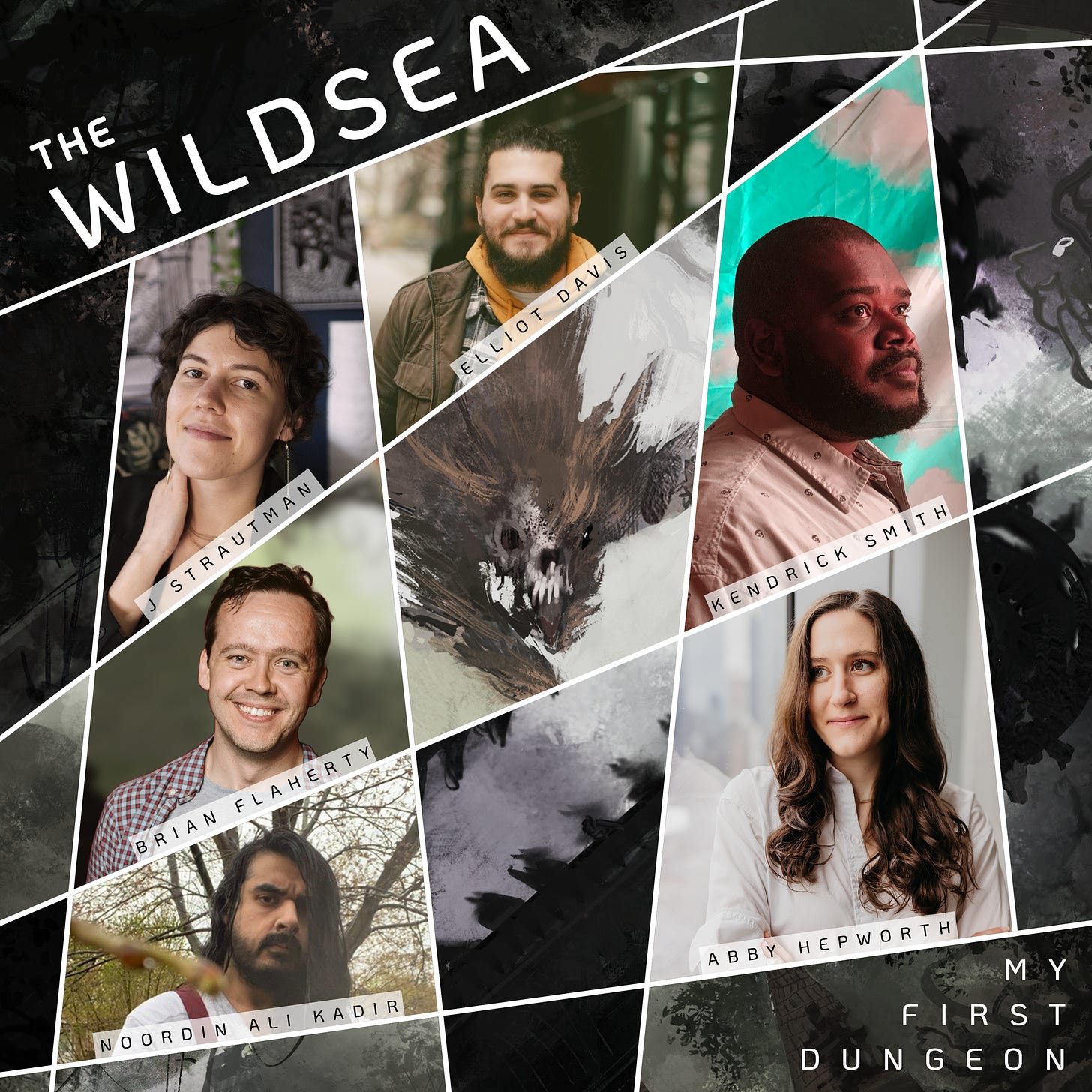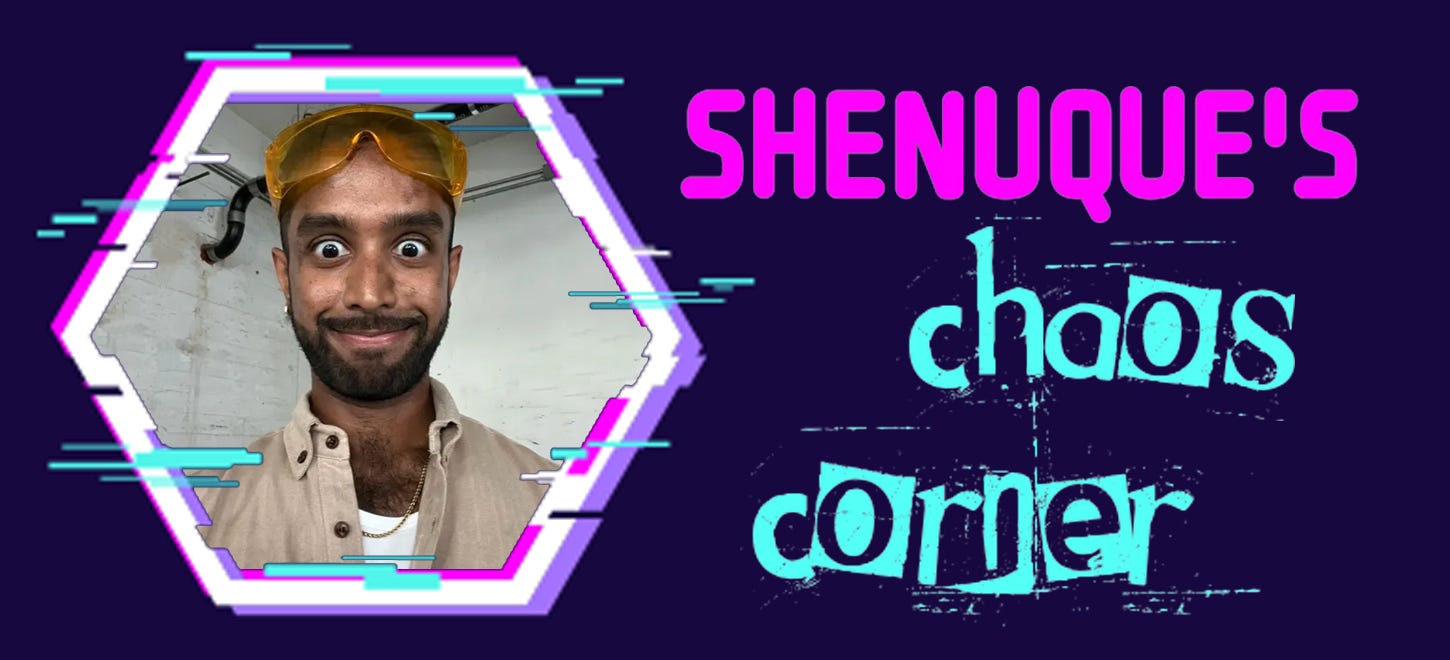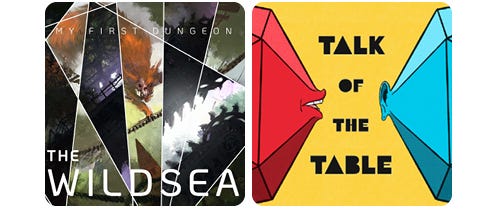In the years since jumping out of the sea of D&D and into the wide ocean of indie TTRPGs, my relationship with GMing has evolved drastically. One-page rules-lite games like Honey Heist made me fall in love with improvised GMing. Robust Session 0s like those of Kids on Bikes and DIE made me giddy to form complex webs of relationship between characters long before any dice are rolled. GM-less games like Wanderhome made me question the role at its core, craving more player input into story and world building in all of my future GMing.
At every step of this journey, my perception of the “right” balance between GM and player agency has shifted and grown. After sitting in the Firefly role for 6 sessions of The Wildsea—getting to play with the delicious cocktail of Cut, Twists, and Whispers—I think I may have found that perfect Goldilocks balance.
Cut Sucks… Kind Of
In our interview with Felix Isaacs, designer of The Wildsea, he gave a piece of advice that I initially balked at: use Cut liberally. Cut is the removal of 1 or more highest resulting dice after the pool is rolled. It’s a way to communicate difficulty and complication to your players but it’s more powerful than just that. Cut is a way of encouraging teamwork from your players, controlling the flow of tension, and delivering on big moments.
Players usually hate Cut. You can hear this throughout our season. This is a tool that sits squarely in the GM’s seat. One of those kinds of tools that could be overused but, with restraint, can create the fun kind of Player/GM antagonism.
Twists Change Everything
Early in the season, Brian said to me “You have Cut, but we have Twists.” Twists mechanize the thing I love from playing GM-less games: turning control over to my fellow players. A Twist occurs whenever doubles are rolled in a player’s dice pool. The exact shape of the Twist is turned over to all players other than the roller. Players are given carte blanche to change the situation in big and small ways—no pitch too outlandish (though the GM has some veto/choice power).
The players gain the power to change the game on the level of a GM. Twists not only led to some of my favorite moments throughout our season but also were a time in play where I got to sit back and be surprised and delighted by the world. With dice pools often growing to five or six dice, this was a common occurrence throughout play, and the game was that much better for it.
Whispers Provide Balance
The Wildsea hits my ideal balance of GM/Player agency at large. Nowhere is this more apparent than in the game’s Whisper mechanic. Whispers are phrases of power, treated as a resource given to and spent by the players. They have three levels of choice: whisper, say, and shout, with differing levels of effect on the world. For me, this is the ultimate collaboration tool between player and GM. I give out the Whisper—often determining what the phrase of power is—but it is the player who decides how* and when to use it, whether to gain information or make a drastic change to the world around them.
If I can pass one piece of advice on to other Fireflies, it would be this: Give out Whispers early and often, encourage your players to use them, and watch the collaborative creation of The Wildsea take shape in front of you.
Safe Sailing!
— Elliot
*“Hey! I listened to this season and that wasn’t true!” - Perhaps I haven’t quite nailed the balance after all…
DISCLOSURE: Mythworks is a sponsor of My First Dungeon presents: The Wildsea
Taking and Giving Feedback as an AP Player
We Love Notes
Actual Play doesn’t quite have the same normalized structures for providing feedback to performers as similar industries. It is a performative art in the same way as acting, stand-up, and music, so it’s crazy to me that it sometimes feels uncomfortable to give a note to a performer who is working on a project with me. While APs are a relatively new medium and there’s still much to define, one thing needs to be defined sooner rather than later, and that is normalizing feedback for our performers.
Why is this even important? Well, for a few reasons!
It makes casting performers easier for productions. I want to work with professional people who understand that while they are very talented, sometimes notes are needed to help tell a compelling narrative. In acting, the worst actors to work with are the ones who can’t take a note well or get upset when given a note. Your job as an actor is to portray a character, and asking questions when you don’t understand a note is important.
It makes you a better performer. Notes aren’t there to make you worse or to tell you that you’re bad at what you’re doing. They’re meant to take what you’re already doing well and make it even better. You’re not doing anything wrong when you get a note; rather, you’re doing well and inspiring your director, producer, or GM to see the possibility of something even deeper with your performance.
It leads to better Actual Plays. Nothing is better for the industry as a whole than better productions all around. If you’re going to make an Actual Play, then it’s worth putting all your resources into it because the medium demands quality. Budgets are limited, but talent doesn’t need to be. Giving and receiving notes are no-cost, high-yield production tools for making Actual Plays better. Who doesn’t love free stuff!
What does good feedback look like?
On the player side:
Let go of ego. We need to accept and understand that as performers, we will be getting notes from the people that employ us. Don’t ignore notes given to you, don’t entirely abandon an idea if someone questions it, and don’t let notes sour your whole mood. Doing that is the easiest way for people to not want to work with you again. Expect notes. It’s a sign that you’re doing something professionally.
Ask for feedback. If you’re working with a new production or playing a game/role you are not familiar with, make it clear you are open to feedback. It will only endear you to that team and make them want you back, and it will make your performance that much better.
Discern a good note from a bad note. Some notes will be bad. That’s okay. You don’t always need to accept it, but you need to know how to respond to it. You should ask for further explanation if you aren’t quite following. Implement it to the best of your ability, but it’s also very fair for you to say that you don’t agree and explain why. This requires open and honest communication and mutual understanding that this conversation is for the betterment of everyone involved.
Have notes for the Twenty Sided Newsletter? GOOD! Drop us a comment to share your thoughts.
On the production side:
Understand how to give a note. A lot of people are bad at giving notes. Notes should be specific and clear. Never say, “Can you do it like insert any other person here?” or give a reading of what you want. That isn’t helpful for performers and actually feels bad to receive. You’re essentially telling them to be someone else, which is impossible. Notes shouldn’t be about things that people can’t change. For example, I once saw a director ask an actor to change the sound of their voice because she thought it was too shrill… that was a terrible note that wasn’t realistic to implement.
People aren’t robots. You can give a note, but depending on the note, it may take some time for the person to process and implement. Give performers the time and space to implement performance notes and don’t be upset if performers have questions about what exactly you want. It may feel crystal clear in your head, but it may not come out that way.
Make notes a normal part of your production. When casting your performers, let them know that there is an expectation that they’ll be getting feedback throughout the performance process, and then do it. It doesn’t have to be negative feedback; you can just let the cast know they’re doing well. If you don’t have any notes, that’s also okay, but let there be space for that to exist.
Notes are what allow chaos goblins to be at their most chaotic! So learn to give and receive them as best you can.
— Shenuque
🗞️ News Worthy
Jon Hamm, Felicia Day, and Emily Axford to star in scripted thriller podcast, “The Dungeon Masters.”
Jasper William Cartwright launches UK-based TTRPG production studio 12 Sided Studios to create “high quality fantasy, sci-fi, and nerdy content.”
Catch up on Dr. Emily Friedman’s Keynote for Generation Analog Conference.
🎲 What We’re Bringing to The Table
🎥 Watch: Quinns Quest Reviews: Mothership
📚 Read: The Art of the RPG Cover by Clayton Notestine
🎧 Listen: A Fool’s Errand | “The Network Defenders” E01 - Memories
🎙️ New From The Studio
My First Dungeon: The Wildsea | Post-Season Talkback with Felix Isaacs
Talk of the Table - The Games Deserve Better Criticism (w/ Quinns)










